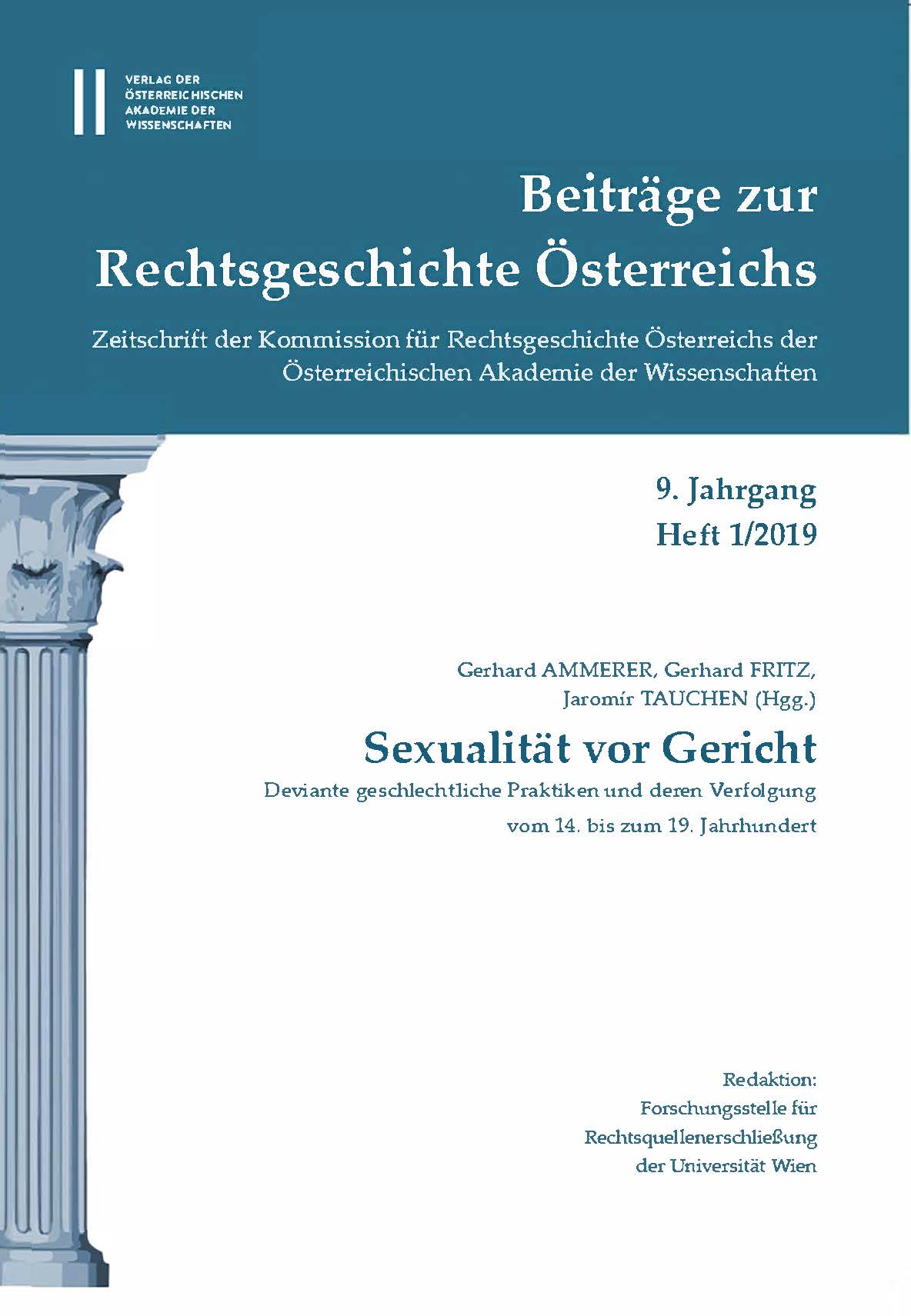
Beiträge zur Rechtsgeschichte Österreichs 9. Jahrgang Heft 1/2019, pp. 245-258, 2019/05/21
Sexualität vor Gericht
Deviante geschlechtliche Praktiken und deren Verfolgung vom 14. bis zum 19. Jahrhundert

In the 18th century, touring companies were organized as family enterprises, led by a male or female principal. As these troops often played only briefly in any given location, its members were reckoned as itinerant or “traveling folk“ (Fahrendes Volk). Most of the players belonged for long periods of time to a stable company and made an effort to organize their lives according to bourgeois norms, but their reputation of wanderers endangered their mobile livelihoods and lifestyles. They were often held to be “dodgy individuals“, suspected of profligacy, vanity, venality and laxity. This alien quality or “otherness“ did not correspond to the self-image and self-description of the players themselves, but formed the context for their self-representation and for the image of traveling companies that long dominated scholarship. The autobiographies of the German actress Karoline Schulze-Kummerfeld, which were written in Linz in 1782 and in Weimar in 1793, respectively, form the center of this essay. In the earlier text, which assumed an apologetic character, the author constantly emphasized her virtue and integrity and wrote not only about the temptations to which she was exposed but also about her standards of love and marriage. Many of her views circle around concubinage. A close reading of her work reveals that the players had their own independent notions of sexuality and deviance, which were nonetheless closely entwined with the surrounding, normative society and its values.
Keywords: Bourgeois morality in 18th-century Germany – German travelling theatres – mistresses („Mätressen“) – Karoline SCHULZE-KUMMERFELD (1742–1815)